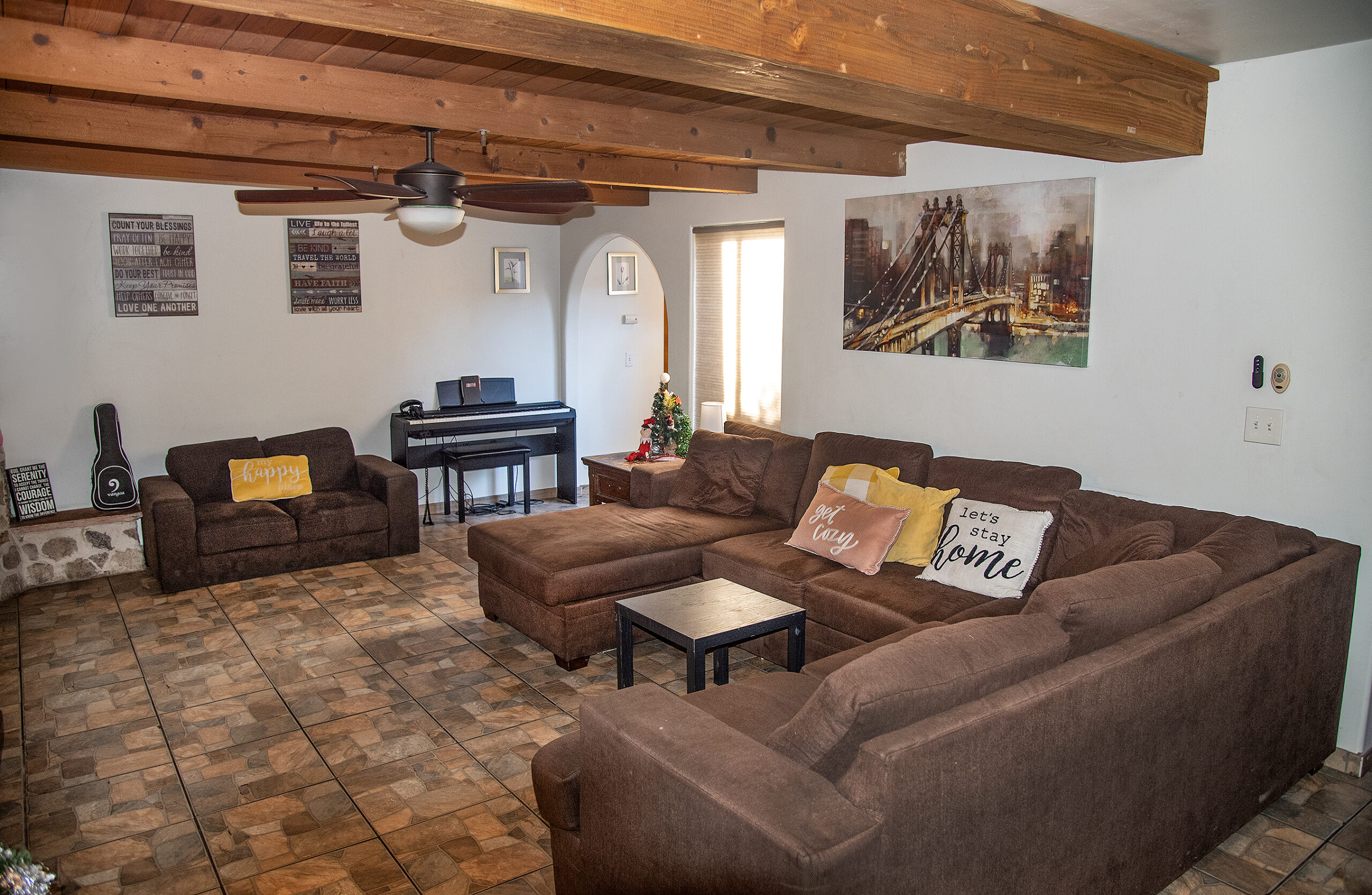At Experience Structured Living, we believe in comprehensive, specialized care. We understand the intricacies of mental health conditions, particularly schizophrenia, and our approach is designed to support, inform, and empower our clients and their families. Below, we offer you a deep dive into this mental health condition, its impact, and how so-called schizophrenia assisted living options can transform lives.
What Is Schizophrenia?
Schizophrenia is a condition that poses disruptions to a person’s ability to think, feel, and behave clearly. The onset of hallucinations, delusions, and scattered thinking is often distressing for the individual and their close ones. This is why many individuals suffering from schizophrenia tend to require adequate housing and continuous support. Schizophrenia assisted living at Experience Structured Living can make all the difference for you or a loved one learning to cope with this condition while still living a full, independent lifestyle.
The Importance of a Stable Environment in Mental Health
The path to recovery for individuals suffering from schizophrenia and other mental health conditions is complex. One of the cornerstones of this journey is a stable, supportive environment. Housing isn’t just about shelter— a nurturing atmosphere at an assisted living home for those diagnosed with schizophrenia provides safety and a foundation upon which they can rebuild their lives. Sadly, many people face challenges when seeking such housing due to societal stigmas and logistical barriers.
A stable environment for assisted living for schizophrenia provides crucial elements such as:
Foundation for Recovery: The predictability and routine of a stable housing situation can be crucial in building a life in recovery.
Reduction of Stress: Having a reliable place to call home alleviates the stress of unpredictability, which often benefits those with mental health conditions.

The Role of Assisted Living in Schizophrenia Care
Assisted living facilities for those with schizophrenia offer more than just a stable environment; they are specifically designed to address the unique needs of individuals with schizophrenia. Beyond providing a structured and secure space, schizophrenia assisted living facilities offer specialized services such as medication management, access to trained mental health professionals, and tailored activities that promote cognitive and emotional well-being. The goal is to provide comprehensive support that allows residents to live as independently as possible while having essential resources readily available.
Long-Term Care Facilities Options for Schizophrenia
Choosing the ideal long term care facility for schizophrenia is critical. Let’s explore some primary choices:
Residential Treatment
Residential treatment centers are a haven for those with intense symptoms who require constant observation. They provide round-the-clock monitoring, regular therapeutic sessions, and a regimen that ensures the individual’s well-being.
Group Homes
Offering a balance of community and independence, group homes provide a space where individuals can share experiences, foster friendships, and grow together. While they might share communal spaces, everyone has their own private space.
Assisted Living
Suitable for those showing signs of stability and desiring more autonomy, these facilities offer assistance in daily tasks while still promoting independence.
How Do You Know If an Adult Diagnosed with Schizophrenia Is Ready for Assisted Living?
Deciding when it’s time for a person who is suffering from schizophrenia to transition to assisted living can be challenging. However, some indicators can guide the decision. The transition to assisted living hinges on several factors:
Signs that the Person Is Ready for Assisted Living:
- Stability is achieved through medication with minimal side effects.
- A clear desire for more autonomy.
- Mastery over daily life tasks.
Signs that the Person Is Not Ready for Assisted Living:
- Recurring hospitalizations or symptom flares.
- Difficulties managing daily activities without aid.
- Apprehension about increased independence.
What Should You Look for in an Assisted Living Facility for an Adult Diagnosed with Schizophrenia?
When choosing long term care for a loved one who is suffering from schizophrenia, look for criteria such as:
Expertise: The staff should be well-trained, understanding, and experienced in handling mental health issues.
Therapeutic Interventions: Access to regular therapeutic sessions and innovative treatment modalities can significantly improve recovery.
Safety: Given the unique challenges of this mental health condition, ensuring the facility is equipped with the necessary precautions is vital.
Community Engagement: Activities and sessions promoting community interaction and bonding can aid healing.
Tips for Finding Assisted Living for Adults Living with Schizophrenia
Research: Start by understanding the services and therapies offered. Each facility is different, so it is important to research to determine which facility is best.
Visit Multiple Facilities: Tour them to get a feel for the environment. There are big differences between so-called “schizophrenia nursing homes,” long-term care facilities, and other centers, so do your due diligence and check out each facility carefully.
Seek Recommendations: Talk to mental health professionals or families with similar experiences.
Prioritize Safety: Ensure the facility has adequate safety protocols in place.
Schizophrenia Assisted Living & Holistic Healing at Experience Structured Living
At Experience Structured Living, we recognize that healing is not merely about addressing symptoms, but about catering to the individual holistically. Residents engage in various therapeutic activities, from art and music sessions to physical exercises like yoga and meditation. Our facility’s emphasis on both mental and physical well-being is part of our comprehensive approach to care.

The Transition from Hospitalization to Schizophrenia Assisted Living
Moving from a hospital or acute care setting to an assisted living for people with schizophrenia and other mental health conditions can be a pivotal step in the recovery journey. This transition requires careful planning to ensure a smooth adjustment. Care coordinators often play a vital role in bridging the gap, collaborating with both hospital staff and the assisted living team to create a personalized care plan. These plans typically include medication management, ongoing mental health support, and strategies for maintaining stability. Our assisted living facilities for people with schizophrenia also focus on gradually acclimating new residents, helping them feel comfortable and secure in their new environment. By providing a structured yet compassionate approach, the transition becomes a stepping stone toward long-term well-being.
Why Choose Experience Structured Living for Schizophrenia Assisted Living?
Experience Structured Living goes beyond providing a roof over one’s head. Our program is tailored to nurture mental well-being and facilitate recovery:
Primary Program
Our program places emphasis on daily living activities, fostering independent skills, ensuring medication management, and encouraging work development.
Holistic Services
We believe in the power of natural healing and coping strategies, providing a holistic approach to mental health.
Comfortable Housing
Step into a space that feels like home. Our facilities are equipped with experienced staff, ensuring a secure, safe, nurturing environment for all residents.
Medication Management
Each resident undergoes a thorough medication review during admission, ensuring they receive the most appropriate treatment.
Occupation Development Program
We support our residents in reintegrating into work or school, recognizing the importance of purpose in recovery.
Recreational Activities
Physical activity and recreation play pivotal roles in mental health, and we ensure our residents have ample opportunities for both.
Family Programming
We introduce families to our Family Healing Program, fostering understanding and creating a supportive network for our residents.
Beyond the Basics: Additional Services
Our commitment to holistic care extends beyond traditional therapies:
Experiential Therapies
We employ various therapeutic methods, including Adventure-Based, Art, Music, and Occupational Therapy, each playing a vital role in mental health recovery.
Holistic Therapies and Services
Our offerings extend to innovative therapies like Vitamin IV Therapy, and Ketamine IV Therapy, each designed to complement traditional treatments.
Choosing an assisted living facility requires making informed decisions. At Experience Structured Living, we’re dedicated to making this journey smoother. Our doors are always open if you or someone you know needs assistance. Join us in fostering a brighter, healthier future.
FAQs About Schizophrenia Assisted Living
Can someone with schizophrenia live independently in assisted living, or is constant supervision required?
The level of independence for someone with schizophrenia in an assisted living facility varies based on the individual’s needs. Some residents are able to live semi-independently, managing their daily tasks with minimal assistance and only requiring check-ins or reminders. Others may need more consistent supervision, especially if they experience severe symptoms. Assisted living facilities tailor their support to the resident, offering flexible care plans that balance independence with safety and well-being.
What recreational activities are available for individuals with schizophrenia in assisted living?
Assisted living facilities offer a range of recreational activities designed to enhance mental and emotional well-being. These can include art therapy, which provides a creative outlet, exercise classes to boost physical health and mood, and group discussions or support groups that promote social interaction. Other activities might involve gardening, music sessions, and mindfulness practices, all aimed at helping residents engage in meaningful and enjoyable experiences.
How do schizophrenia assisted living facilities ensure that residents adhere to their treatment plans?
To ensure residents stick to their treatment plans, assisted living facilities implement various strategies. These include daily or weekly medication reminders, regular check-ins with healthcare providers, and support from staff members trained to monitor adherence. Facilities may also coordinate with external mental health professionals to adjust treatment as needed and provide educational resources to keep residents informed and engaged in their care.
Are there specialized staff members trained in handling schizophrenia-specific challenges?
Yes, most assisted living facilities for individuals with schizophrenia employ specialized staff members who are trained to handle mental health challenges. These staff members typically have experience in psychiatric care, crisis intervention, and understanding the complexities of schizophrenia. Ongoing training ensures that they remain well-equipped to provide compassionate and effective support, helping residents feel understood and cared for.
Can family members participate in care planning or therapy sessions?
Family involvement is often encouraged in assisted living facilities. Family members can participate in care planning meetings to provide input and stay informed about their loved one’s progress. Some facilities also offer family therapy sessions or educational workshops to help relatives better understand schizophrenia and how they can provide support. Maintaining an open line of communication between families and the care team is key to a resident’s success.
What measures are in place to ensure the safety of residents with schizophrenia?
Assisted living facilities implement several safety measures to protect residents. These may include secure entrances and exits to prevent wandering, regular safety checks, and trained staff on-site 24/7 to respond to emergencies. Residents’ living spaces are designed to minimize risks, and protocols are in place to address potential crises or self-harm. Despite these precautions, facilities strive to maintain a sense of autonomy and dignity for each resident.
How do schizophrenia assisted living facilities handle co-occurring disorders, such as substance abuse or anxiety, alongside schizophrenia?
Facilities equipped to handle co-occurring disorders use a comprehensive approach to care. This often includes integrated treatment plans that address both schizophrenia and any additional conditions like substance abuse or anxiety. Staff members coordinate with various healthcare specialists to provide therapy, counseling, and support groups, ensuring all aspects of a resident’s mental health are being managed cohesively.
Are there opportunities for residents to continue education or vocational training while in schizophrenia assisted living?
Many assisted living facilities recognize the importance of personal growth and offer opportunities for residents to pursue education or vocational training. These programs can range from GED preparation and college courses to job training and skill-building workshops. By offering these options, facilities help residents set and achieve goals, fostering a sense of purpose and independence.
What happens if a resident’s condition worsens while in schizophrenia assisted living?
If a resident’s condition worsens, assisted living facilities have protocols in place to provide additional support. This can involve increasing the level of supervision, adjusting the care plan, or consulting with medical and psychiatric professionals to modify treatment. In severe cases, the facility may coordinate with hospitals or specialized care units to ensure the resident receives the necessary attention and care.
How do schizophrenia assisted living facilities measure and track the progress of residents with schizophrenia?
Progress is typically monitored through regular mental health assessments, feedback from staff, and input from residents and their families. Facilities may keep detailed records of symptom management, participation in activities, and overall well-being. These assessments help guide any necessary adjustments to care plans, ensuring that each resident receives the most effective and personalized support.

Jenny Li is a California Licensed Professional Clinical Counselor (LPCC) and board-certified counselor by the NBCC with a Master’s in Clinical Mental Health Counseling from the University of San Diego. She is soon to be licensed in the state of Arizona and New Mexico. Jenny has lived and worked in Scandinavia, Asia, and Central- and South America; working with different populations in different capacities over the past 25+ years. She speaks English, Swedish, and Mandarin.
Jenny is currently in her PhD program for Clinical Supervision and Counseling Education. She has advanced training in several modalities and interventions, including Cognitive Behavioral Therapy (CBT) (CBT-E, CBT-P), Dialectical Behavioral Therapy (DBT), Acceptance Commitment Therapy (ACT), and the Transdiagnostic Unified Protocol for complex emotional concerns. She is EMDR trained (basic/advanced), a Level 1 IFS therapist, and certified in Exposure and Response Prevention (ERP) for OCD. For families, she is trained in Emotion-focused Family Therapy (Level 2 EFFT), draws on structural family principles, and implements interventions from being trained in Gottman’s methods. She is in the process of becoming a CAMFT Certified Clinical Supervisor.
She has worked as a faculty member in university settings and provided direct clinical care in hospitals, residential, and outpatient care with experience treating children, adolescents, young adults, and adults. Jenny has been providing direct clinical services over the past eight years. She is currently in her role as the Executive Clinical Director for residential and outpatient mental health services, where she also leads a team of clinicians, providing clinical supervision and overseeing program development and clinical services.





